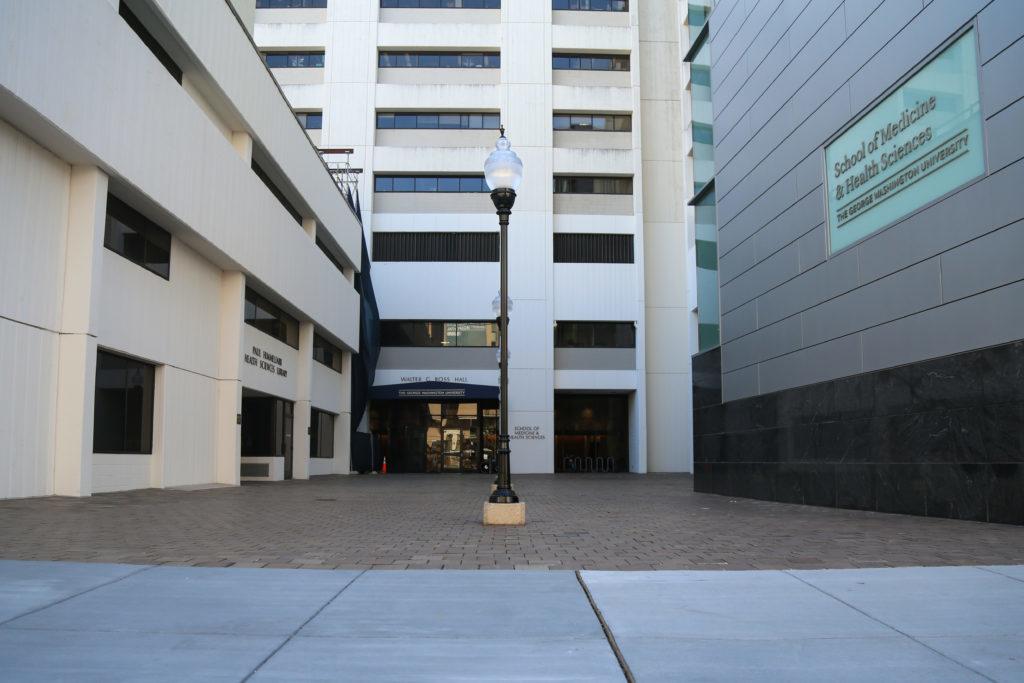A team of researchers will travel across the Atlantic Ocean to research the ethics of altering DNA at GW this summer.
Researchers will arrive from The French National Center for Scientific Research, a government-run research organization in Paris, as a part of a study on the social, political and legal consequences of manipulating human genes. The project could shape future policies around ethical parameters for altering someone’s DNA – a practice that is highly under-explored and comes with unknown health risks, team members said.
The project will create a GW unit of Epigenetics, Data, Politics – or EpiDaPo – a laboratory group that works to compile data sets with a focus on public health issues. The research project is expected to last between one and three years within the medical school’s genomics and precision medicine department.
The team of both GW and French researchers will work to gather data on genes and collect surveys on people’s environments, and how this may affect their genetic makeup. The researchers will also explore the controversies associated with changing someone’s genetic makeup and how this can affect public health policies.
The international research unit, EpiDaPo, which started at University of California, Los Angeles, will be funded by the French National Center for Scientific Research. This particular project will also receive funding from the National Institutes of Health, the National Science Foundation and other international grants.
Eric Vilain, who will lead the project, came to GW from UCLA, where he worked with EpiDaPo earlier this academic year.
Vilain, the chair of the department of genomics and precision medicine, said the research will focus on the consequences of probing the human genome, which is the complete set of a person’s DNA makeup, and epigenome, which acts as a marker of interactions between genes and an individual’s environment.
The study will also focus on gender and the human genome, the political controversy regarding the environmental effect of genes and traits that are passed on and the use of data analytics software to diagnose diseases, he added. The project will also question the ethics of manipulating DNA – a practice that can have harmful health impacts and potential social implications.
“GW is located in the perfect spot for a multidisciplinary research involving both sociology, political science, statistics and life science,” he said in an email. “Congress is around the corner, and so is the NIH and the FDA, making the fields of study very fertile.”
Vilain said the researchers will work at GW, utilizing the school’s library resources to look at past literature on how society organizes and regulates science. The researchers will also conduct field inquiries and interviews to collect data, he said.
“Our society is more and more shaped by our interpretation of science,” he said. “And conversely the dynamics of science depend on a lot of social and political factors. For hot topics such as genomics and precision medicine, it is crucial to have research performed to understand the social consequences of the scientific approach.”
Vilain said the Office of the Vice President for Research was supportive of bringing international researchers to campus, especially following University President Thomas LeBlanc’s efforts to prioritize multidisciplinary research projects.
The office has worked to increase global research collaborations and partnerships over the last several years.
“The response was very enthusiastic, especially in light of the priorities of GW to become a global leader,” he said.
Leo Chalupa, the vice president for research, said building international partnerships amplifies the University’s global research presence and boosts GW’s reputation around the world.
“Working with international collaborators can broaden perspectives, open new avenues of funding and provide access to unique resources and study populations,” Chalupa said in an email.
Michel Dubois, a visiting professor in sociology at the University of California, Los Angeles and deputy director of EpiDaPo, said he will create stronger connections between the French research unit and GW, which will allow for future collaborations between U.S. and French researchers.
“Our research team should be able to contribute to a true interdisciplinary dialogue on the progress but also the challenges of the postgenomic life sciences,” he said.





